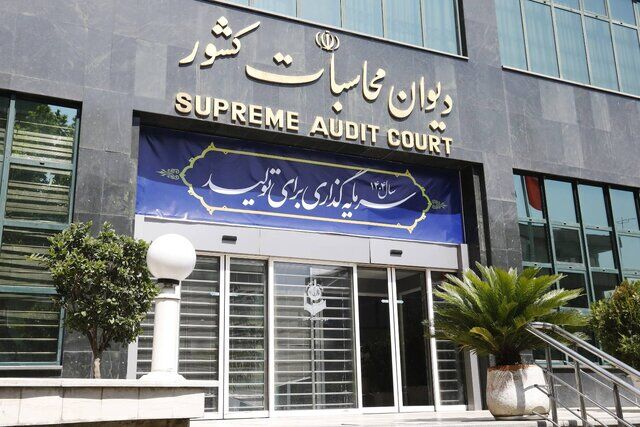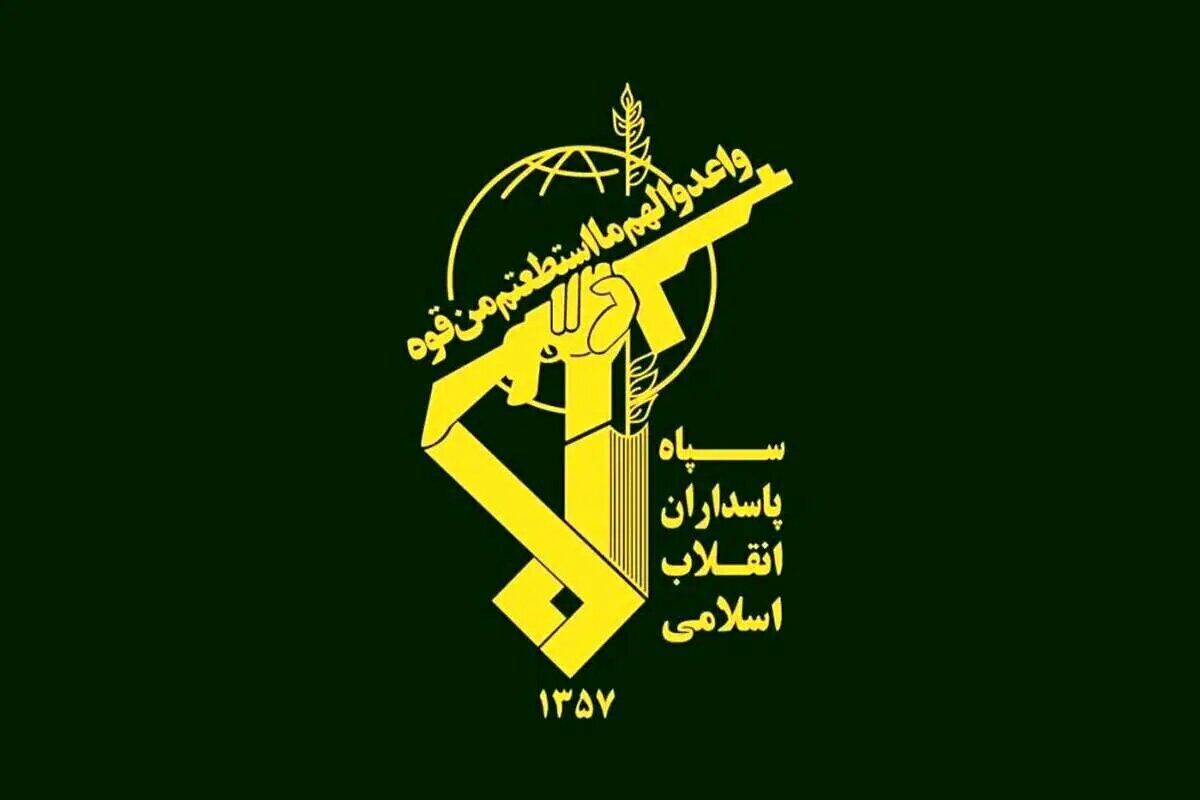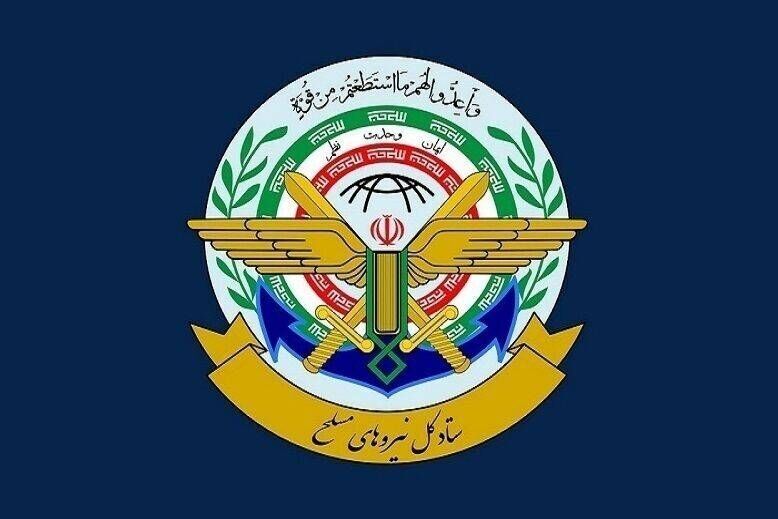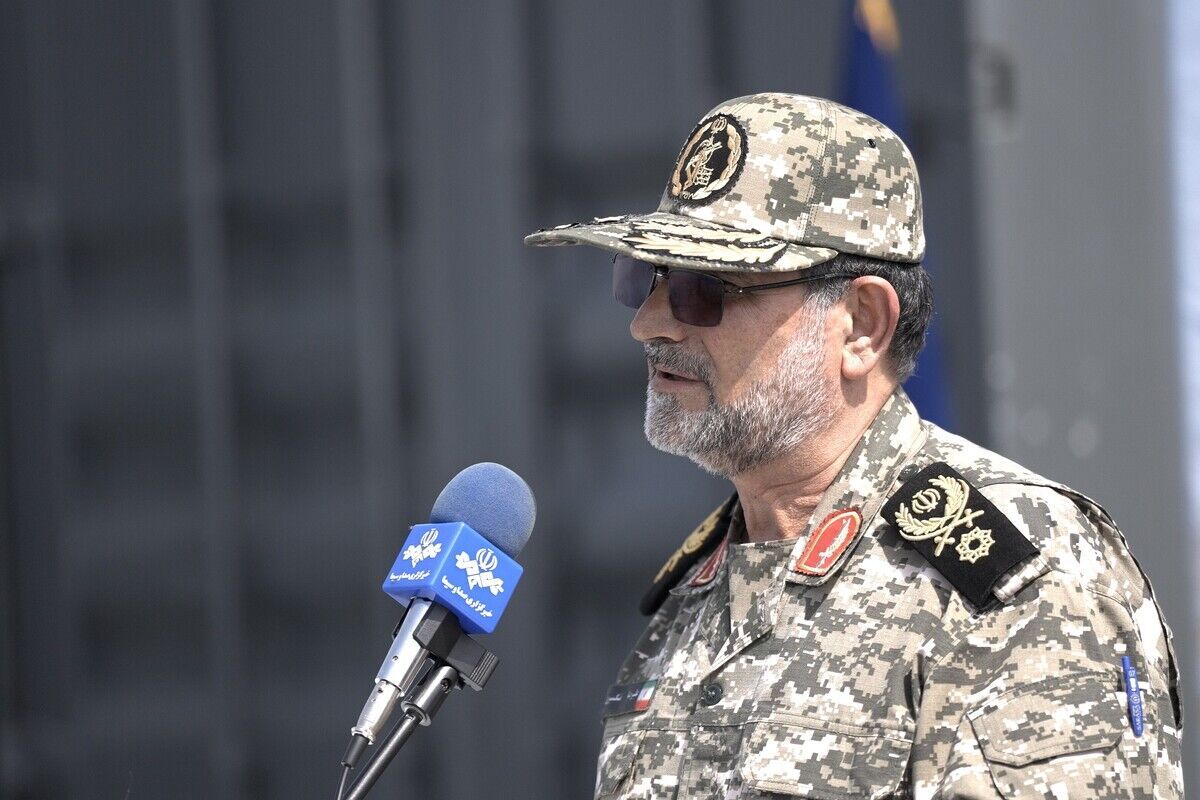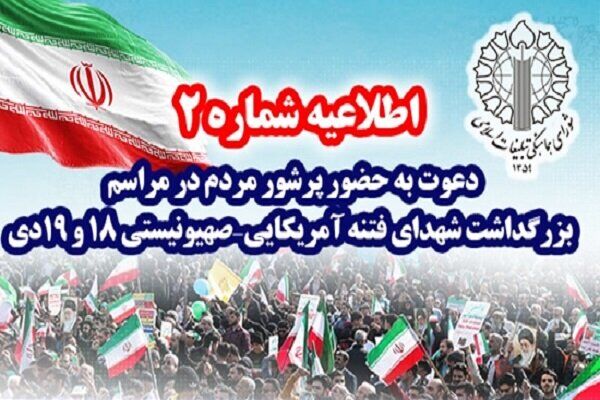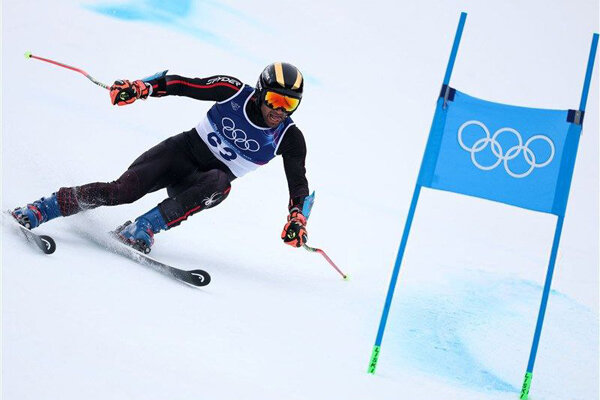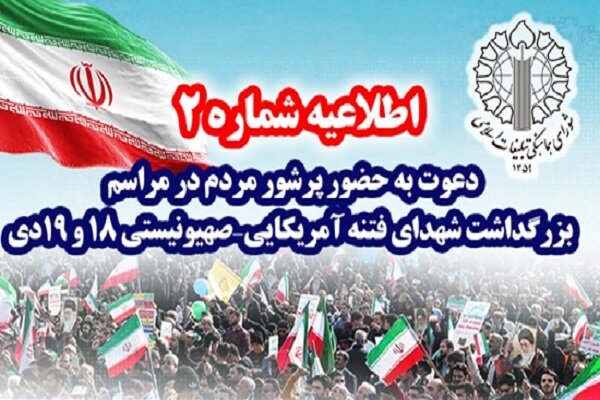Exclusive: Navi Pillay on Israel's Gaza genocide and global complicity
Exclusive: Navi Pillay on Israel's Gaza genocide and global complicity
Few jurists have left as profound and enduring a mark on international justice as Judge Navi Pillay.
From her beginnings as a young lawyer challenging the machinery of apartheid in South Africa to her historic role at the International Criminal Tribunal for Rwanda (ICTR), where she helped establish that sexual violence can constitute genocide, Pillay has spent a lifetime pushing the boundaries of legal accountability.
A former UN High Commissioner for Human Rights, she currently serves as the Chair of the UN Commission of Inquiry on occupied Palestine and Israel and an ad hoc judge at the International Court of Justice (ICJ).
In this exclusive, wide-ranging interview with Middle East Eye's Expert Witness podcast, recorded on 6 October 2025, Pillay reflects on her Commission’s recent finding that Israel is committing genocide in Gaza, and explains how the jurisprudence she helped to shape at the ICTR informed her legal reasoning.
The discussion also explores her perspective on the ICC’s arrest warrants for Israeli and Hamas leaders, the sanctions imposed by the US against court officials, and the limits of international institutions in delivering justice while atrocities are ongoing.
Below is the full transcript of the interview, lightly edited for clarity and readability.
What are the key findings of the UN's genocide report?
MEE: First, can you talk us through the key findings of the Commission of Inquiry report in terms of the acts of genocide and the specific intent of genocide that have led you to conclude that Israel has committed this crime?
Navi Pillay: I’ve always said that when there is suspicion that a crime has been committed, where do the police begin? They begin by investigating the acts.
And so we do not begin with the label. We don’t think, “Oh, why don’t we call it genocide now?” No. It is the evidence that led us there.
First, the Commission analysed the underlying acts of genocide as they are set out in the Genocide Convention. The Commission found that four out of five of the underlying acts have been committed by the Israeli authorities and the Israeli security forces from 7 October 2023 to 31 July 2025.
These acts are: killings of members of the group; causing serious physical or mental harm to members of the group; imposing conditions of life calculated to destroy the group; and preventing births within the group.
We did not find any evidence of the fifth underlying act in the Convention, which is the transfer of children from one group to another.
Having found that the underlying acts have been committed, we then analysed whether the Israeli authorities had the specific intent to destroy the Palestinian group in Gaza through any of these four underlying acts.
We found that statements made by Israeli leaders were direct evidence of genocidal intent. As for the evidence we gathered, the Commission analysed whether the only reasonable inference that could be drawn from the pattern of activities by the Israeli security forces in Gaza was that of genocidal intent.
Israel has consistently claimed that its military campaign in Gaza is conducted: one, in self-defence; two, to defeat Hamas; and three, to secure the release of Israeli hostages.
As we assessed the pattern of conduct of the Israeli authorities and the security forces, we found that Israel’s claims were not justified.
There did not appear to be any military objective in most of these acts.
Firstly, the Commission found that the Israeli security forces have intentionally killed and seriously harmed an unprecedented number of Palestinians in Gaza since 7 October 2023, using heavy munitions.
Secondly, the systematic and widespread attacks on religious, cultural, and educational sites throughout Gaza since 7 October 2023 were aimed at causing irreversible harm to Palestinians in Gaza by destroying elements of the Palestinian people’s identity, erasing Palestinian culture from Gaza.
Thirdly, Israel has had no intention to alleviate the suffering of Palestinians trapped in Gaza, and instead implemented a total and partial siege.
On the contrary, and despite numerous warnings, including those issued by the International Court of Justice through its Provisional Measures orders, which are binding on Israel, Israeli authorities have not only failed to facilitate the unimpeded access of humanitarian aid into Gaza, but have continued to restrict or completely block humanitarian aid, including food, water, fuel, power, medical supplies, and equipment.
They have also blocked other essential items and services from entering Gaza, including food, water, and medicines.
Fourthly, the systematic and complete destruction of the healthcare system in Gaza, the siege-induced deprivation of medical necessities for Palestinians, and the denial of medical exit visas for Palestinians seeking treatment outside Gaza have prevented their ability to heal, recover, and live.
Fifth, the widespread sexual and gender-based violence has been instrumentalised not only as punishment against individuals, but as part of a pattern of collective punishment, to fracture, humiliate, and subjugate the Palestinian population in its entirety.
And sixth, the widespread and systematic targeting of children forms part of a strategy to destroy the biological continuity and future existence of the Palestinian group in Gaza, thus forming part of the intent to destroy Palestinians in Gaza.
Taken together, these acts fit within the outcome of destruction of the Palestinian people. Considering all this, the Commission found that genocidal intent was the only reasonable inference that could be drawn based on the pattern of conduct of the Israeli authorities.
And so, the Commission concluded that the Israeli authorities and Israeli security forces have the genocidal intent to destroy, in whole or in part, the Palestinians in the Gaza Strip.
We found that the Israeli political and military leaders are agents of the state; therefore, their acts are attributable to the State of Israel.
Why is Gaza different?
MEE: You were the President of the International Criminal Tribunal for Rwanda, which delivered the first genocide judgments in history, and you’ve investigated many shocking atrocities throughout your more than 60 years of legal work. So, what stood out in Gaza?
Navi Pillay: Yes, I participated on the panel of judges who delivered the world’s first judgment on genocide.
Now, we should note, of course, that all crimes are crimes, they must be prosecuted. What is different with the current genocidal campaign of Israel is that it is captured and displayed to the public live. People on the streets, everywhere, tell me all the time, “Yes, we can see what’s happening. We are witnesses.” This is an ongoing occupation and genocidal endeavour. And that’s the key difference, it’s ongoing, and everybody is seeing, in real time, the killings and the destruction of these wonderful monuments and buildings: hospitals, schools, universities.
And there has been no remorse at all for their conduct, which has killed more than 65,000 Palestinians, with many more injured.
On the contrary, Israel has continued with its genocidal campaign in Gaza, despite warnings by the International Court of Justice, despite warnings and alarms raised by all credible organisations. Most recently, they have attempted to discredit the report published by our Commission, which is a UN commission.
The Israelis have continued to starve the population in Gaza and trap them there, blocking all necessities from reaching the population, and they continue to target children.
This is no longer about war crimes or crimes against humanity, which is what we said on 10 October 2023. Now we look at the evidence, and it is clearly genocidal.
The Commission has received many testimonies from victims expressing not only the injuries and harm they have suffered, but collectively they show a clear pattern. Their testimonies, as graphic and heartbreaking as they are, also show that Palestinians are so resilient. Their resilience in times of genocide is truly admirable.
On the one hand, it is inspiring, yet on the other, it is deeply poignant, because the international community has witnessed, in real time, the genocide that is unfolding, and yet has done little to address it or to stop the carnage.
It is really sad to say this, but the international community has failed the Palestinian people, and by this, I mean the majority of states.
Genocidal intent
MEE: You’ve mentioned the standard of “only reasonable inference” as your way of concluding that genocidal intent was present in the Gaza case. You also told me prior to the launch of the report that this is the same legal standard that is used, and will be used, by the ongoing case at the International Court of Justice in The Hague, the case brought by South Africa. You explained that your report will remain the most authoritative finding from the United Nations to date until the ICJ delivers its judgment, probably in a couple of years from now.
Could you highlight for our audience how your methodology is similar to that of the ICJ? And could your report help or be useful for the ICJ in its ongoing genocide case?
Navi Pillay: Well, the standard of proof in criminal courts, including at the International Criminal Court, is ‘beyond reasonable doubt’, which we consider a very strict and stringent test, and which we applied in the ad hoc tribunals for Rwanda and for Yugoslavia.
At the International Court of Justice, the standard of proof is ‘fully conclusive’, which is not as high as the criminal court standard.
The standard of proof used by UN investigative bodies, such as our Independent International Commission of Inquiry on the Occupied Palestinian Territory, including East Jerusalem and Israel, is ‘reasonable grounds to believe’. This is a less stringent standard compared to the International Criminal Court and the International Court of Justice.
In order to prove specific intent to commit genocide through circumstantial evidence, the ICJ applies the test of the ‘only reasonable inference’ standard. That is to say, intent to destroy the group, in whole or in part, must be the only reasonable inference that can be drawn from the pattern of conduct.
So, in assessing the specific intent to commit genocide in Gaza through a pattern of conduct, we applied the test of ‘only reasonable inference’, similar to the standard of the ICJ.
For the analysis of direct evidence of intent, for example, through statements, the Commission applied the ‘fully conclusive’ standard when examining the evidence.
These are, therefore, more stringent standards than the usual thresholds for a UN investigative body. Considering the nature of the crime, the Commission chose to align its standard of proof for specific intent with that applied at the ICJ, which is the principal judicial organ of the United Nations.
That is why we say that we are the most authoritative investigation and set of conclusions as things stand, until there is a decision by the ICJ, which is the highest court of the UN.
Overall, we concluded on reasonable grounds that genocide has been committed, taking into account the most stringent standard applied for specific intent at the ICJ.
Sexual violence as genocide
MEE: You’ve mentioned, as part of the evidence you examined during your investigations, the incidents of rape and sexual violence, and how they constituted genocide in Gaza.
You helped establish that rape and sexual violence can constitute genocide in the precedent of the Akayesu case at the International Criminal Tribunal for Rwanda, and that set a historic precedent in the jurisprudence on genocide.
Can you first talk about the significance of that precedent in international criminal law, because you played a huge role in introducing it, and also how those debates in Rwanda about intent and evidence shaped your approach to Gaza in the Commission of Inquiry report?
Navi Pillay: You are right, that was the very first time that genocide was prosecuted. In the Akayesu case, and other cases where the ICTR ruled that rape and sexual violence constituted genocide, we relied solely on the evidence given to us by victims.
It was so important for us to hear directly from them, because their testimonies revealed the extent of the violence and its consequences. The evidence (from women, and from men who witnessed the rapes and sexual violence, mostly against women but also against men) was deeply compelling. We linked this evidence to statements made by political leaders.
Statements such as, “Don’t ever tell me you haven’t tasted a Tutsi woman before,” were made by Akayesu himself, a figure of authority, along with statements that “nobody should know what a Tutsi looks like.” These demonstrated an intent to exterminate.
That case marked the first decision in which the evidence fulfilled the four crimes listed under the Genocide Convention. It showed that rape and sexual violence as acts of genocide affect not only the individuals, but the entire community or population as a whole.
For genocide, it is essential to establish that the perpetrators had the specific intent to destroy a group.
In the Akayesu case, we found that rape was used as a tool of destruction, to humiliate, to terrorise, and ultimately to destroy the spirit of the Tutsi people.
The Commission finds many similarities between the Akayesu case and what is currently unfolding in Gaza. It is important to understand the cultural and societal context.
We found that the widespread sexual and gender-based violence in Gaza was instrumentalised not only as punishment against individuals, but as part of a pattern of collective punishment, to fracture, humiliate, and subjugate the Palestinian population in its entirety.
That is significant. And I appreciate your question, Sondos, because that was the first-ever conviction where rape was recognised as a war crime, a crime against humanity, and even an act of genocide. It had never been prosecuted before.
Many members of civil society and UN colleagues had long been urging states to recognise rape as a war crime. I was recognised for having delivered that first judgment and for writing that portion of it. That jurisprudence is directly applicable to the Gaza situation.
We reviewed videos showing Palestinian women being humiliated, for example, images taken by Israeli soldiers holding up the underwear of Palestinian women. Those soldiers were so proud of what they had done that they posted the pictures on social media with great pride.
So, you have to ask: what is the military objective of raping women and men? How is that a matter of Israel’s defence?
We would be doing the victims an injustice if we did not examine the rape and sexual violence of women and men that occurred there.
Intimidation or threats
MEE: Have you received any threats, or been the subject of any intimidation by Israel or its allies, as a result of your work on this inquiry?
Navi Pillay: My fellow commissioners and I were subjected to all kinds of abuse. In my case, nobody ever called me an anti-Semite during the six years that I served as UN High Commissioner for Human Rights, nor in my previous roles as an international judge.
This kind of abuse started only after we accepted to serve on this Commission of Inquiry. I was called an anti-Semite, and the Commission was accused of being biased and selective.
But we have a mandate, and we fulfil that mandate professionally and without bias.
I’m very proud of the team we have at the Commission. The commissioners are supported by a small team, and although we have limited resources, I truly want to tell the world how hard this team has worked, with utmost professionalism. I can say without a doubt that they will persevere to ensure the Commission’s mandate is fulfilled every single year.
So, to answer your question briefly, we have not been subjected to intimidation beyond these abusive remarks, which have come not only from Israeli authorities and their ambassador, but also from lobby groups supporting Israel.
Trump’s Gaza plan
MEE: I’d like to hear your reaction to Trump’s recently announced Gaza plan, in light of the findings of your report and of international obligations towards the situation in Palestine.
Can I also get your response to this quote by Dr Nimer Sultany, an outspoken Palestinian international legal scholar, who commented on the plan, saying:
“The Trump–Netanyahu plan should be opposed and rejected. It offers the Palestinians a choice between colonial apartheid and occupation at best, and gives cover for the continuation of genocide at worst.”
Do you agree with this opinion? And does Trump’s plan, as announced, provide a pathway for ending the genocide, or is it essentially a continuation of it?
Navi Pillay: I think Dr Sultany has very good reason, and is justified, in reaching that conclusion. Just because there is now a call for a ceasefire does not mean that the finding of genocide is going to disappear, not when it is based on evidence of the activities of the Israeli security forces.
Yesterday I heard Trump once again say that if Gaza does not sign his peace agreement, then he will support the total obliteration of Hamas.
This is not the way to enter a peace agreement, by bullying and threatening one side. That troubles me deeply, and it raises serious doubts about their motives.
The main issue is that Palestinians are not part of this process. They not only should be part of it, they should be the central and controlling feature, because they are capable of governing themselves.
The conclusions of the Commission still stand: Israel has committed genocide and continues to do so. Whether the Trump–Netanyahu plan will help stop the genocide seems highly unlikely to me.
In relation to the plan, I must stress that it must take into account the responsibilities of all parties. And as I’ve said, it must involve the Palestinian people, there is no other way, and there should not be another way.
I also want to emphasise that the plan envisions an interim administration, rather than allowing local political actors to take immediate control. This undermines local legitimacy. The plan allows Israel to maintain significant security control over Gaza, which would restrict Gaza’s independence and, ultimately, the sovereignty of the Palestinian people.
This plan directly contradicts the declaration of the International Court of Justice, and the UN General Assembly resolution of 18 September 2024, which gave a deadline (now expired) stating that the occupation must end. The peace plan does not address that at all.
Is the UK complicit?
MEE: The International Court of Justice is currently hearing the case brought by South Africa in December 2023, accusing Israel of breaching the Genocide Convention.
The projection for this case is that the judgment will not come before the end of 2027 or the beginning of 2028. Even after the findings of your very authoritative report that Israel is committing genocide in Gaza, the UK government remains of the opinion that it is up to the Court to determine or to name it as genocide.
In your view, is the UK’s position sound or unfounded? And should the UK adopt the findings of your report and officially recognise that genocide is happening in Gaza?
Navi Pillay: First of all, the international community need not wait for a report from a UN body such as our Commission, nor do they need to wait for a ruling on genocide by an international court such as the International Court of Justice.
Why do I say this? Because there is a legal obligation in the Genocide Convention on the part of every state, whether the genocide has occurred in their territory or not.
So, the UK is under a legal obligation to prevent genocide and to punish its commission.
How are they going to do that if they do not heed the indicators of genocide?
The Court, in its Provisional Measures Order granted at the request of the South African legal team, said that there are plausible indicators that genocide is happening, or may happen. That is one indicator.
The other indicator to the UK government should be our report, which sets out the facts clearly. They can make their own determination based on this report, which includes statements of incitement made by political leaders in Israel, as well as what is happening in front of their eyes, the killing of thousands, the deaths of 62,000 people, women and children, and the denial of medical care, food, and humanitarian aid. These are all pieces of evidence on the ground that the UK appears to be waiting for.
They are also obliged to fulfil the order of the ICJ, which requires all states to take action and for Israel to end the occupation, and Israel was given a deadline to do so.
As I said, there is a duty under international law to punish and prevent genocide. This duty was triggered at least since January 2024, when, through the Provisional Measures Order, the ICJ confirmed that this obligation applies to every state.
The Commission’s report, as I said, is the most authoritative report from a UN body to date.
The Commission applied the same stringent standard laid down by the ICJ regarding the genocidal intent element. Therefore, our report should be referred to by the international community as a strong indicator that they must act now to stop the ongoing genocide in the Gaza Strip.
We have also provided some concrete recommendations to states, specific directions that must be taken seriously and implemented as far as possible.
We recommend that states, first, should employ all means necessary and reasonably available to them to prevent the commission of genocide in the Gaza Strip.
Secondly, we recommend that states cease the transfer of arms and other equipment or items (including jet fuel) to the State of Israel or to third states, where there is reason to suspect their use in military operations that have involved, or could involve, the commission of genocide.
Thirdly, states must ensure that individuals and corporations within their territories and jurisdictions are not involved in the commission of genocide, or in aiding and abetting the commission of genocide, or in incitement to commit genocide.
States should investigate and prosecute those who may be implicated in these crimes under international law. They should also facilitate investigations and domestic proceedings that are taking place or will take place, including by imposing sanctions against the State of Israel and against individuals or corporations involved in, or facilitating, the commission of genocide.
And finally, states should cooperate with investigations conducted by the Office of the Prosecutor of the International Criminal Court. These recommendations should be addressed immediately by the UK government.
MEE: So does the UK government now risk being complicit in genocide if the supply of F-35 parts continues, in your view, given these recommendations of your report?
Navi Pillay: Based on the evidence we found, there is complicity on the part of states that are supplying weaponry, fuel, and other forms of support. There are also other laws and treaties, such as the Arms Trade Treaty, which stipulate that states must not supply arms to countries likely to use those weapons to take sides in a conflict or to commit violations of international law.
So, under the Genocide Convention and other laws to which the UK is a party, continuing with these activities could well expose them to accountability for complicity in genocide.
ICC sanctions
MEE: What’s your take on the current US sanctions targeting judges and prosecutors, and even the UN Special Rapporteur on Palestine, Francesca Albanese, along with reports that the ICC itself is at risk of sanctions as an institution? Do you support calls to initiate an ICJ case on the basis of the diplomatic immunity of UN special rapporteur Albanese?
Navi Pillay: I am strongly against these sanctions. I see them as a direct and intentional interference with the judicial system and an obstruction of the rule of law.
I would urge all Member States to strongly challenge these sanctions in every possible way, including by seeking an opinion from the International Court of Justice on the weight of the Privileges and Immunities Convention, under which all people working within the United Nations should receive the protection of those privileges and immunities.
It is totally unfair, and morally and legally wrong, to issue sanctions against judges and prosecutors of the International Criminal Court.
I know these judges, deputy judges, and prosecutors. They have a huge responsibility.
The UK, for instance, is very happy to cooperate with these judges and prosecutors regarding the complaint against Russia in respect of the attack on Ukraine.
So they cannot be selective, supporting one cause but not another.
The UK is a member of the Rome Statute. It supports the referral of the Ukraine situation, and yet does nothing about the penalties imposed by the US against these ICC judges who are simply carrying out their mandated work.
And the sanctions against Francesca Albanese are almost cruel. I met her just before I left Geneva. This young woman has had to face so much.
These sanctions are immoral and wicked, to go after individuals, in this case Francesca Albanese, who has rendered such valuable service out of commitment and without any remuneration. She has no personal agenda in carrying out her important mandate.
I sincerely hope that these sanctions against these individuals will be lifted as soon as possible, if not immediately.
Slow justice
MEE: Your legal career is quite inspirational, and I’m sure you’re a role model for many young law students and aspiring lawyers and judges.
Can you share some highlights from your more than 60-year journey in international justice, and what’s your message to those who dismiss international law as being too slow or ineffective?
Navi Pillay: Let me first address the common complaint that international trials are slow, take too long, and are ineffective. I’ve come across that question many times before.
Firstly, even in national courts, where there is a single accused and perhaps one or two witnesses, cases can take a long time. I once made a note of how long some of these cases have taken, especially trials under the Terrorism Acts in the United States and many other countries.
They do take time. But at the international level, courts must hear evidence from hundreds of witnesses and review thousands of documents. Judges are very concerned about how long trials take, but this is how 21st-century trials work.
At the International Criminal Court, for example, even victims are given the right to counsel, to address the court, and to participate in proceedings. We’ve come a long way from the Nuremberg tribunals, which were decided largely on affidavits and paper witnesses. Those trials were completed within about ten months.

Today, 21st-century rules on fair trial exist to protect everyone, and that is a good thing. We can take satisfaction in knowing that justice today is more comprehensive and inclusive, even if it takes longer. It’s important for everyone to remember that what matters most is that justice prevails.
We shouldn’t take a negative view of the time these trials require or abandon them because of their length.
In my personal experience under apartheid, all of us (people of colour) had nowhere to turn. The laws were immoral, and racism was institutionalised. We couldn’t turn to anyone for justice.
Many people, including the late President Nelson Mandela, were imprisoned for life. He served 27 years, as you know. We had no tribunal to turn to for a fair trial, we were trapped within the apartheid courts, where we received no justice.
That’s why I always longed for a system of justice. I was very interested in the Nuremberg trials. I was about 18 or 19 at university when I read those case reports, and they inspired me deeply.
That’s what I aspired to, not only for my own country but for others as well, including across Africa, where so many have no justice system to turn to.
That is why I have remained so dedicated to, and continue to believe in, an international system of justice, one based on the norms and values set out by the UN when it adopted the Universal Declaration of Human Rights.
Personal journey
Navi Pillay: I started very young. In South Africa, many people of colour were poor and couldn’t afford a university educationThe poor community of Clairwood, a suburb outside Durban, raised funds to send me to university. I’m truly grateful for that community support. My teachers told them, “We have a young girl who has the potential to do something in life.” Those were my small beginnings.
I had to serve articles in order to become a lawyer, two years as an intern. That’s where I learned, as I went into the rural areas, about the suffering of Black people and how cruel the apartheid system was. All my lessons came from the people who struggled for liberation in South Africa, and particularly from women.
Women would come to me and tell me about the domestic violence they suffered. They would cry and weep. At first, I was very impatient with them, I thought, why are they crying? They should just be strong, hit him back, or move out of the house. But it’s not that easy, as you listen to them.
That was my first lesson in addressing domestic or gender-based violence. I went to see the Chief Magistrate and asked him to use an apartheid-era law from 1953, a law originally intended to protect white people from what they called “nuisance” by Black people whistling or talking loudly in the streets.
I persuaded the Chief Magistrate to instruct all magistrates to grant peace orders for the protection of women from their batterers, which were usually in domestic situations.
That’s where I learned to always look for opportunities to identify and address issues, because communities out there are suffering. They know what suffering is, but they don’t have the power that I had as a lawyer to defend people in court.
I represented most of the opponents of apartheid who belonged to various opposition groups, such as the African National Congress, the Unity Movement, and the Black Consciousness Movement.
In reality, I was running a human rights office, because most of these people couldn’t pay for legal services. But I’m pleased I did that work. I also went on to study further and obtained two postgraduate degrees from Harvard: my master’s and my doctorate.
My fellow lawyers in Durban said, “Well, how is that going to help you? It’s not as if you can charge more fees than us.” I replied, “You spent your money buying a Mercedes-Benz. I’m spending mine to study further so I can be a better lawyer in the courtroom and do my best for my clients.”
It looked hopeless at times, but even in apartheid South Africa, we won some important rulings. For instance, my husband was detained, and I brought an application under the Terrorism Act. I couldn’t ask for his release, the power of the courts to do that had been removed under the Act, but that was what I wanted.
I didn’t get his release, but we did get an order in which the judge directed the security police not to use unlawful methods of treatment against detainees, and ordered the sheriff to serve that order on them.
When my husband was eventually released, he told me how much that order had meant to him, he said he burst into tears when he received it.
Another case involved my clients who were convicted and sent to Robben Island Prison. When I went to see them about their case, we couldn’t talk directly about prison conditions, but we found ways to communicate. One of my clients, who was a lawyer, was sent into isolation and put on a “spare diet” simply because he had presented a petition to the officer commanding Robben Island Prison.
They didn’t know their rights, and they didn’t have access to prison rules or regulations. They had no right to a lawyer or to study. Mandela told them to tell me not to bring an application because, as he said, “You can’t win a case in the apartheid court.” I was very young then, in my thirties.
I consulted several senior lawyers, of all races, and they all helped me with ideas and encouraged me to proceed. To cut a long story short, we won the order for them.
As a result, they gained access to prison regulations, the right to a lawyer, and the right to study. Those rights were very important for their survival in prison.
So, my point is: you can make a difference if you try, in whatever capacity and with whatever power you have.
MEE: You also arguably had an instrumental role in the beginnings of the Convention Against Torture, your work had a direct impact on that as well.
Navi Pillay: Yes. I mentioned earlier the application I filed for my husband when he was in detention. I supported that application with his own written note, because he had been released for a short period and then detained again. During that time when he was out, he left a power of attorney in my favour, and he also wrote a note describing how he had been treated during his earlier detention.
So, there was my affidavit setting out those facts, along with ten affidavits from my clients who had been detained together with my husband. My husband was never charged, but they were, and they were horrendously tortured.
We made sure that those affidavits reached the anti-apartheid group that had observer status at the UN.
For the very first time, the UN then had sworn affidavits proving that torture was being practised in apartheid South Africa. South Africa’s opponents asked for a convention to prevent torture, because there was no such convention at the time.
They also called for sanctions against South Africa from the UN, but that was vetoed by the US and the UK government under Margaret Thatcher.
Later, we all realised that they were going against the UN and effectively supporting institutionalised racism, but that was what happened. Shortly after those affidavits reached the UN, Steve Biko was killed, and that tragedy helped to drive forward the movement for a Convention Against Torture.
It is something that now benefits people who are at risk of torture all over the world. I started with a small goal, never realising the full implications of those efforts, always simply trying to secure rights and protection for people.










